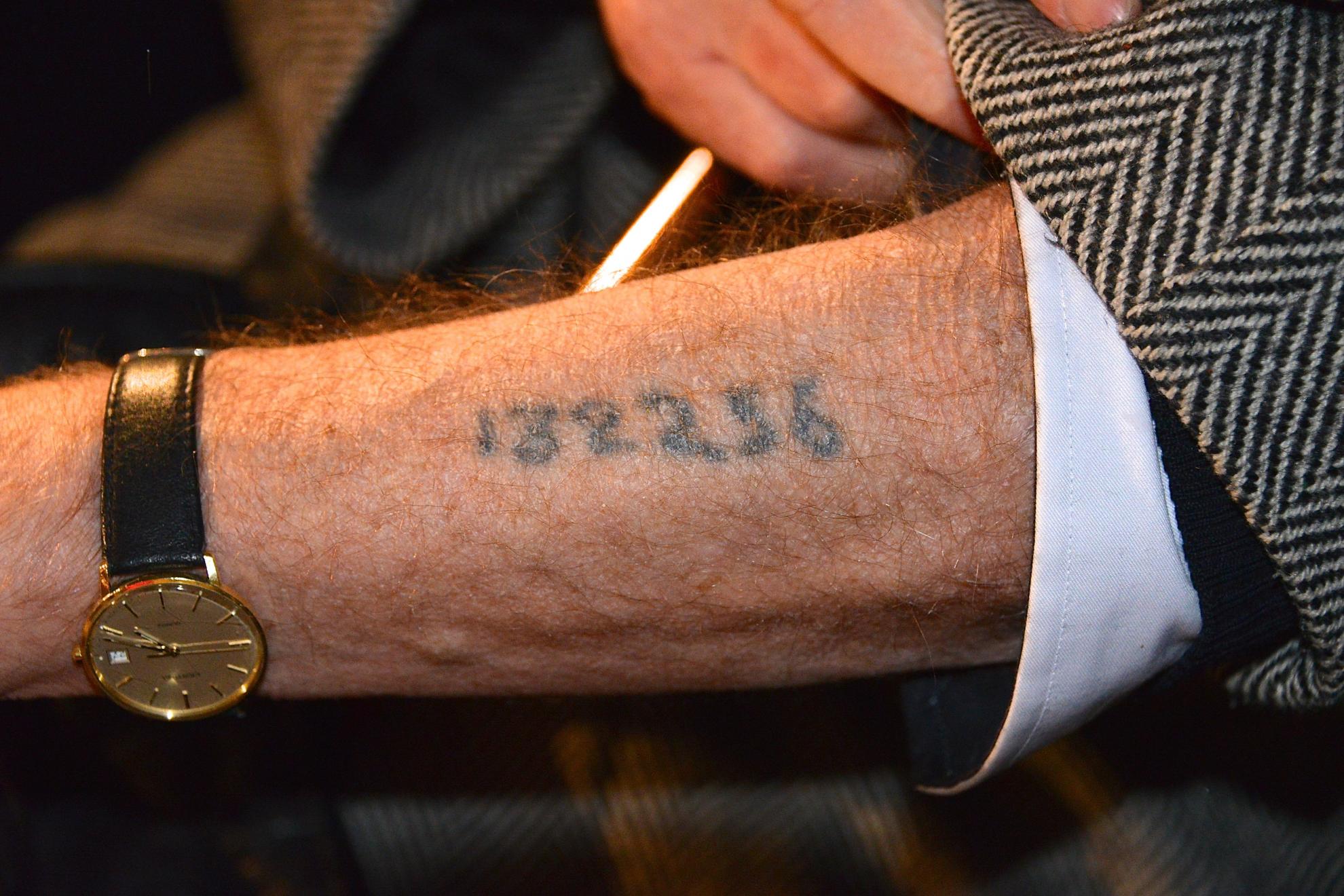March 10, 2023|י"ז אדר ה' אלפים תשפ"ג Tetzaveh-Purim 5783 - Standing Proud & Never Forgetting Who You Are
Print ArticleThe very beginning of the Purim story begins with the party Achashveirosh throws for all the residents of Shushan. And, as we know, he requests that Vashti come pay a visit. When she refuses, she is removed as queen.
However, the language that is used to describe the plan for her removal is quite interesting:
(א:יט) ]אִם עַל הַמֶּלֶךְ טוֹב יֵצֵא דְבַר מַלְכוּת מִלְּפָנָיו וְיִכָּתֵב בְּדָתֵי פָרַס וּמָדַי וְלֹא יַעֲבוֹר אֲשֶׁר לֹא תָבוֹא וַשְׁתִּי לִפְנֵי הַמֶּלֶךְ אֲחַשְׁוֵרוֹשׁ וּמַלְכוּתָהּ יִתֵּן הַמֶּלֶךְ לִרְעוּתָהּ הַטּוֹבָה מִמֶּנָּה:
Memuchan, the King’s advisor, argues that the King should send a message throughout his kingdom, letting all know that Vashti didn’t arrive at the party, and that the King has decided to remove her from the role of queen and hand it to the one who is BETTER THAN HER.
At first, this line may seem benign, except that the language used by the Megillah is the EXACT same language used in a totally different context.
When King Shaul is commanded to destroy Amalek, and he falls short, Shmuel HaNavi comes to visit him. And when he sees that Shaul allowed King Agag to remain alive and that he had preserved the sheep and cattle, all against the wishes of HKBH, he informs Shaul that his time as King is over. He tears Shaul’s clothing and he tells him:
שמואל א פרק טו
(כח) וַיֹּאמֶר אֵלָיו שְׁמוּאֵל קָרַע יְקֹוָק אֶת מַמְלְכוּת יִשְׂרָאֵל מֵעָלֶיךָ הַיּוֹם וּנְתָנָהּ לְרֵעֲךָ הַטּוֹב מִמֶּךָּ:
Hashem has torn the kingship from you today, and He has given it to another WHO IS BETTER THAN YOU!
The parallel is striking. In both cases, the text tells us about an individual whose time as monarch has ended, and that their position will be handed over to someone else.
But why does the Megillah feel the need to borrow this EXACT phraseology? What is this illusion coming to teach us?
Rav Yitzchak Twersky, in his sefer Amittah Shel Torah offers a very thoughtful insight, and he answers this question on two levels:
The first, most straightforward connection is that Shaul loses his crown because he refuses to deal decisively with the problem of Amalek. He listens to the voice of the people, he delays, and because he allows the King of Amalek, AGAG, to survive for even a few extra days, this eventually gives rise to Haman Ha’Agagi, either Agag’s genealogical or ideological descendant, who is now ready to wreak havoc on Bnei Yisrael so many generations later in Shushan.
Because Shaul is indecisive, he loses his throne, and the issue of Amalek will be left instead to Esther.
The removal of Vashti, in the same way, removes the final impediment, paving the way for Esther, also a descendant of the tribe of Binyamin, like Shaul, to fix the mistake of her predecessor.
In that sense, the language of removing one monarch in place of one who will be TOV MIMENA, greater, is echoed BOTH in the story of Shaul and the story of Esther, as Shaul’s removal is rectified by Vashti’s removal and Esther’s ascendance to the throne.
But there is an even deeper layer to this connection between the story of Shaul and the story of Esther.
From the time we are children, we are taught what chazal tell us is the reason Vashti didn’t attend the party:
תלמוד בבלי מסכת מגילה דף יב עמוד ב
מאי טעמא לא אתאי? אמר רבי יוסי בר חנינא: מלמד שפרחה בה צרעת במתניתא תנא: [בא גבריאל ועשה לה זנב].
Why didn’t she show up?
- Rav Yossi bar Chanina: She became afflicted with tzaraas
- Others state: Gavriel the angel came and gave her a ZANAV.
What are Chazal trying to teach us here? That Vashti had a tail!?
The Aruch explains that the word ZANAV can refer to any appendage added to an item which is extraneous, or extra when it comes to the item itself. Thus, a handle or spout on a cup can also be called a Zanav.
Vashti was very beautiful, but that day there was something extraneous, something external that was clouding her beauty, and whatever it was, it made her self-conscious. She became so worried about what others would think of her, that she refused to be seen at all.
If this is true, now we might understand what it was that Achashveirosh and his ministers saw in Esther that made her indeed, SUPERIOR to Vashti. Because when the Megillah tells the long story about how the new queen was to be chosen, it singles Esther out for a particular mida:
- When all of the women are brought to the King, the Megillah tells us, “Kol Asher Tomar Yinasein La”, whatever items the particular woman would request would be given to her. Whatever it was that she wanted she was allowed to receive before she would come before the King.
- However, when it is time for Esther to approach, the Megillah goes out of its way to tell us: “U’B’Hagia Tor Esther… Lo BIKSHA DAVAR” When it was Esther’s turn she didn’t ask for ANYTHING! And the pasuk concludes, “Vatehi Esther Noseis Chein b’einei kol ro’eha” and Esther found favor in the eyes of all who SAW HER!
The contrast between Esther and Vashti, and all the other individuals is striking. Whereas Vashti could not overcome her concern for how others viewed her, Esther did not spend her time worried about what others thought.
And you would think, someone who doesn’t care so much about what others think about her, presumably people wouldn’t be drawn to her. When in fact, just the opposite takes place. Everyone who sees Esther is drawn to her.
And this, of course, is the difference not only between Esther and Vashti, but also between Shaul & David HaMelech.
In the same story we referenced earlier, when Shmuel comes to accost Shaul and asks him why he didn’t listen to Hashem and allowed the sheep and cattle to remain from the battle with Amalek, he responds:
“Ki Yareisi es Ha’Am V’Eshma B’Kolam” “I was afraid of the people, and I gave in and listened to them!”
- Shaul couldn’t withstand the pressure of those who wanted him to act a certain way. He was always persuaded by how others would view him.
Dovid HaMelech, is the exact opposite.
In yet another story in Sefer Shmuel II, when David is bringing the Aron, the Ark, to its new home in Yerushalayim, he leads the people in exuberant dancing in front of the Aron, a full display of his lack of regard for his own Kavod in place of his desire to show Kevod Shamayim.
Michal, Dovid’s wife, who is also Shaul’s daughter, accosts him later that evening, asking why he embarrassed himself dancing that way in front of the people.
And David responds to her:
שמואל ב פרק ו
(כא) וַיֹּאמֶר דָּוִד אֶל מִיכַל לִפְנֵי יְקֹוָק אֲשֶׁר בָּחַר בִּי מֵאָבִיךְ וּמִכָּל בֵּיתוֹ לְצַוֹּת אֹתִי נָגִיד עַל עַם יְקֹוָק עַל יִשְׂרָאֵל וְשִׂחַקְתִּי לִפְנֵי יְקֹוָק:
I was dancing in front of Hashem who chose me instead of your father.
On the one hand, it seems like a sharp response. But what David is telling her is exactly this point: Your father was removed from the Kingship because he was afraid to be himself. He was always looking over his shoulder, worrying what others thought of him. I was chosen because Hashem wants me to be myself, serving Him with confidence and without concern for those who will ridicule or make fun of me.
And this exact mida is the mida that Esther herself brings back to the lineage of Shaul. She, together with Mordechai who refuses to bow to Haman, refuses to live a life that isn’t genuine and authentic to who he is, are the ones who are chosen to finally stand up and defeat Amalek, in a way Shaul never could.
Why does the Megillah go out of its way to describe Esther’s ascendance to the throne with the EXACT SAME LANGUAGE that is used to describe Shaul’s loss of the monarchy?
Because it was Shaul’s inability to be his authentic self in his service of Hashem that caused him to falter, and it was Mordechai & Esther’s CONFIDENCE to be their true, authentic selves that allowed them finally defeat Amalek.
The Dubna Maggid would tell the following parable: There was a person who lived in a small town, and one day his friends come back from a trip and tell him that there is a wagon that can move without horses pulling it.
He says, “It can’t be!” They tell him he has to go to the big city and see it for himself. He saves up all his money for months and months. Finally he arrives and he asks a stranger to see this wagon without a horse. “What? The train? You go over there and buy a ticket.”
So he goes, he’s looking around, and he asks the individual at the booth what he should do. The ticket booth manager asks him where he wants to go. He’s says, “I don’t know how this works.”
“Well, how much money do you have?” He shows him all his money that he saved up. “It looks like you want a first class ticket.”
He tells the man to stand on the platform and then take your seat in first class when the train arrives.
The train comes, everyone is pushing and shoving, and he jumps on too. All of a sudden, people start screaming “the conductor is coming! Everyone hide!”
He doesn’t understand, so he jumps under a bench, covers himself in suitcases, with the mud on the ground like everyone else. But his shoes are showing because he’s very tall. The conductor find him and begins to beat him.
“Why are you hitting me!?” The conductor says, “Because you don’t have a ticket! You snuck on the train!”
“Yes, I do have a ticket!” And he shows it to the conductor.
“Not only do you have a ticket, you have a first class ticket! Why are you hiding?”
“I have no idea. This is my first time here and people said to hide, so I did too.”
“No! That’s because they don’t have a ticket, so they hide in the mud with the chickens! You have a first-class ticket where they serve you all the food and drink you would like. You paid a heavy price for this! Go up to the front and enjoy it!”
Said the Dubna Maggid: The man on the train is Am Yisrael. We have a first-class ticket. We are the Am HaNivchar. We have paid a heavy price to be where we are.
Yes, we are the Am HaNivchar, but for millenia we have been thrown down on the floor, kicked in the mud, and we sometimes think we belong there on the floor with the chickens. We hide behind benches and we’re embarrassed to sit in the car where we belong. And that is why we need sometimes we need to remind ourselves not to be embarrassed of who we are, and instead to hold our heads high.
Recently, the price has been too high. 14 special, beautiful Jewish adults and children murdered in the last month for no other reason than the fact that they are Jews. And yet, Am Yisrael continues to stand strong against our enemies, never afraid to stand up and be who we are.
At the funeral of Hallel & Yagel Yaniv, their parents, at the funeral of their two young, innocent sons, they called to the Jewish People to remain calm, not to take revenge, singing “Asher Bachar Banu Mikol Ha’Amim”, that after all we have been through we know how special our mission is in this world. Jews who after paying the most devastating price, remain proud and steadfast, knowing exactly who they are.
This is the story of Purim. The story of a nation who is threatened, who is beaten down, a people who pay the highest price, and yet never forget who we are. Who don’t hide under benches in the mud, forgetting who we are.
May we use the days of Purim to remind ourselves how great we are as a people and how great and proud we should be to be members of this great nation each and every day.




